Highlights 2016
A selection of events that shaped the activities of the SNSF in 2016
29 January
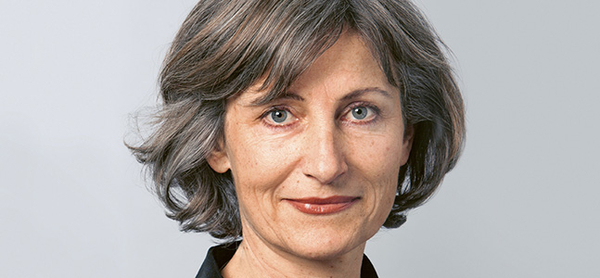
New director
The Executive Committee of the SNSF elects Angelika Kalt as the new director of the Administrative Offices. On 1 April 2016, she succeeds Daniel Höchli, who steps down after eleven years at the helm to become the director of Curaviva Schweiz. Angelika Kalt was full professor of petrology and geodynamics at the University of Neuchâtel for eight years. In 2008, she joined the SNSF as deputy director.
1 February
Stem cells
Stem cells can both cause and cure diseases. Diabetes, heart disease, cartilage replacement, wound healing, brain tumours, Parkinsonʼs – twelve research groups involved in the National Research Programme “Stem Cells and Regenerative Medicine” (NRP 63) finish five years of research into how stem cells can be a factor in such diseases, or how they could be used to treat them more effectively in the future. NRP 63, now concluded, has issued a brochure summarising its main research results.
26 April
Focus on innovation
The SNSF presents its innovations in research funding at Swiss higher education institutions. Its “Tour de Suisse” starts on 26 April at ETH Zurich and ends on 20 June at the University of Geneva. Most of the attention is focused on the changes introduced in project funding, the scheme that helps researchers from all disciplines finance independent projects.
21 June
Gender dimension
The SNSF holds the international conference “Gender and Excellence: Challenges in Research Funding II” as a follow-up to a conference on the same topic held in October 2014. The conference in Bern focuses on a potential gender bias in the perception and evaluation of excellence, and on the inclusion of the gender dimension in specific research areas. Much has been done to improve the gender balance in science in the last few decades – but the challenges remain formidable.
21 June
Spirited MHV Prize
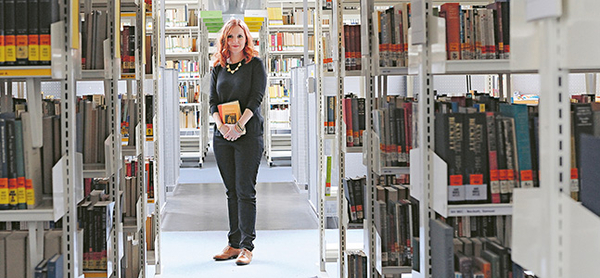
Zoë Lehmann Imfeld receives the Marie Heim-Vögtlin Prize 2016 worth 25,000 francs at the SNSF’s Bern headquarters. The prize is awarded in recognition of her research into ghosts and the Gothic element in Victorian literature. The 36-year-old specialist in English literature and theology is a researcher at the University of Bern. In her highly original dissertation, she undertakes a theological reading of the ghost story in late 19th century English literature. The MHV Prize is awarded to an MHV grantee for the exceptional quality of her research work and progress in her career.
28 June
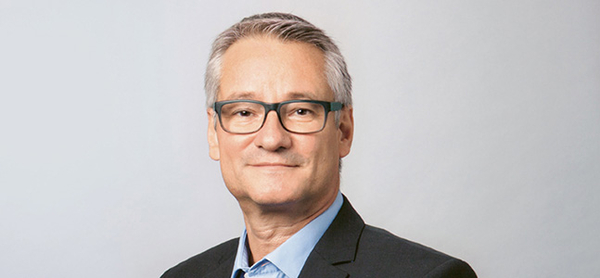
New deputy director
The Executive Committee of the Foundation Council has appointed François Baumgartner as deputy director of the Administrative Offices. He starts in his new role on 1 September 2016. In recent years he has worked at the Federal Statistical Office as interim director and head of the Health and Social Affairs division. He has a PhD in geophysics, a degree in education studies and a master’s degree in public administration.
23 September
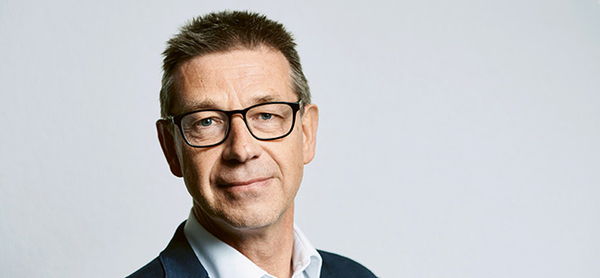
New president
The Foundation Council of the SNSF elects Matthias Egger, an internationally renowned epidemiologist, as President of the Research Council for the 2017–2020 period of office. The 59-year-old professor and public health specialist from Bern succeeds Martin Vetterli, who becomes President of EPFL. Matthias Egger has been head of the Institute for Social and Preventive Medicine (ISPM) of the University of Bern for the past 14 years.
17 October
Building bridges
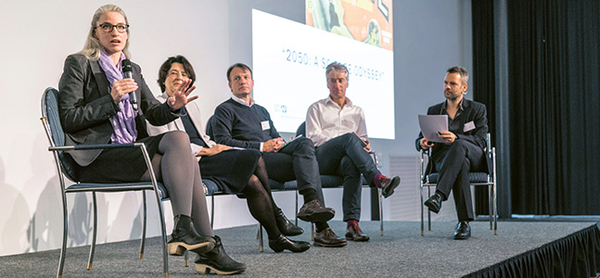
The SNSF and the CTI launch their joint funding programme BRIDGE with a call for the first funding option, known as “Proof of Concept”. BRIDGE strengthens cooperation between science, the private sector and society. It supports young researchers who want to develop an innovative application based on their own research results.
15/16 November
Looking to the future
At its annual “Séance de réflexion” in Interlaken, the National Research Council looks ahead to “2050: A Science Odyssey”. Can we predict how knowledge will be produced and disseminated in 2050? Imaginative answers to this question are myriad, but only one approach rings true: the SNSF must anticipate research trends early and continually reappraise its role as a funder in a rapidly changing environment. Held over two half-days, the “Séance de réflexion” offered a glimpse of the challenges brought to light by the question how science will be conducted, funded and communicated in the future.
28 November
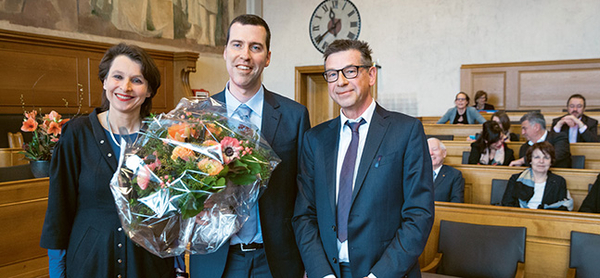
Decolonisation
One of the great experts on the decolonisation of Africa receives the National Latsis Prize 2016: the German historian and SNSF professor Alexander Keese is awarded the prize in recognition of his research into ethnicity, forced labour and political transition in West and Central Africa. His highly original research is not conducted from a eurocentric perspective. “I am interested in the social situation of the local people,” says the 39-year-old prizewinner. The National Latsis Prize is awarded each year by the SNSF on behalf of the International Latsis Foundation.